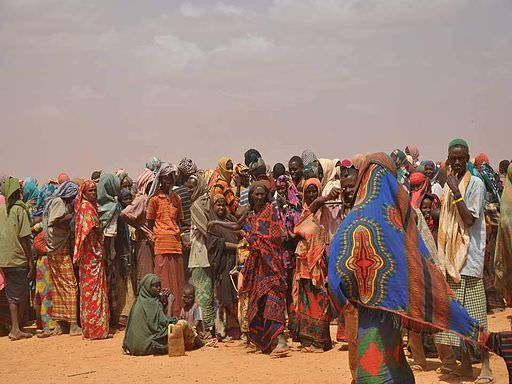Help Needed Now for Climate Refugees
A United Nations University report urges governments worldwide to draw up plans urgently to avoid conflict and insecurity by helping populations that are being forced to move because of climate change.
By Paul Brown, Climate News NetworkThis piece first appeared at Climate News Network.
LONDON — Hundreds of thousands of people are already migrating because of climate change, and countries urgently need adaption plans to resettle populations and avoid conflict.
Sea level rise, violent storms and more gradual disasters such as droughts will cause more unplanned mass population movements — either temporary or permanent — and governments need to manage this by planning in advance to protect vulnerable people, says a new report.
The report, by the United Nations University’s Institute for Environment and Human Security, warns that unplanned movements will lead to conflict and insecurity. Governments need to act regionally to anticipate and facilitate the movement of people.
Ideally, for the displaced families, this would mean providing access to land and housing. They would need financial services, health, education, water and sanitation. They would also need jobs and the ability to cover the costs of living and food security.
Move to survive
Economic and environmental factors sometimes combine to cause migration, with people anticipating that they may have to move to survive. This can lead to people moving individually to seek a new life — like many of those currently crossing the Mediterranean to Europe from North Africa — or to whole family groups looking for new lands.
Some countries already faced with voluntary or forced migration because of climate change are involved in relocating populations and are working internationally to find new homes in other countries for their people. This planning allows displaced people to live and work abroad with dignity, rather than be refugees.
An example is Kiribati in the Pacific, where displaced islanders have been trained for new jobs — for example, nursing — in countries such as Australia. Other new jobs include seafaring, teaching and policing. This enables family members to work abroad and support those relatives still at home who want to remain in their islands for as long as possible.
The report studied the national adaption programmes of 50 countries affected by climate change, and which fear that populations will have to move because of climate change. They include low-lying countries such as Bangladesh, a number of Pacific and Caribbean island nations, and dry African countries. The adaptation programmes are available from the UN Framework Convention on Climate Change.
The Nansen Initiative, launched in 2012 by the governments of Norway and Switzerland, is a project designed to study how to help people who are displaced across international borders by the effects of climate change.
The Initiative is in the process of looking at regions particularly affected by climate change that already have problems with migration. These are the Pacific, Central America, the “Greater Horn of Africa”, and South-East Asia and South Asia. The report concludes that all of the Pacific region island countries are already affected by slow and sudden-onset natural hazards, including cyclones, floods and drought.
Dry Corridor
A recent meeting held in Costa Rica heard that, as well as sudden natural disasters, changes in the rainfall pattern have led to what is known as the “Dry Corridor”. Participants discussed the plight of the indigenous people of Kuna, in Panama, where 65,000 individuals were relocated from their low-lying islands to higher ground.
In the Greater Horn of Africa region, climate change is expected to increase the already significant migration of populations caused by droughts and floods. Hundreds of thousands of people were displaced within Somalia or across the borders to Kenya, Ethiopia and Djibouti during the 2010-2011 droughts.
The report concludes that in addition to finding land, homes and jobs for the newcomers so they can support their families, they need to be made part of the community. Planned relocation efforts should be aimed at integration of the newcomers into existing political structures and giving them some participation in decision making about their own futures. The plight of the old and vulnerable, children and women must be considered.
The need is to avoid conflict within families, with authorities and host communities. Efforts should be made to avoid loss of cultural and spiritual identity and traditional knowledge. This will avoid the need for further migration and displacements.
Your support matters…Independent journalism is under threat and overshadowed by heavily funded mainstream media.
You can help level the playing field. Become a member.
Your tax-deductible contribution keeps us digging beneath the headlines to give you thought-provoking, investigative reporting and analysis that unearths what's really happening- without compromise.
Give today to support our courageous, independent journalists.






You need to be a supporter to comment.
There are currently no responses to this article.
Be the first to respond.